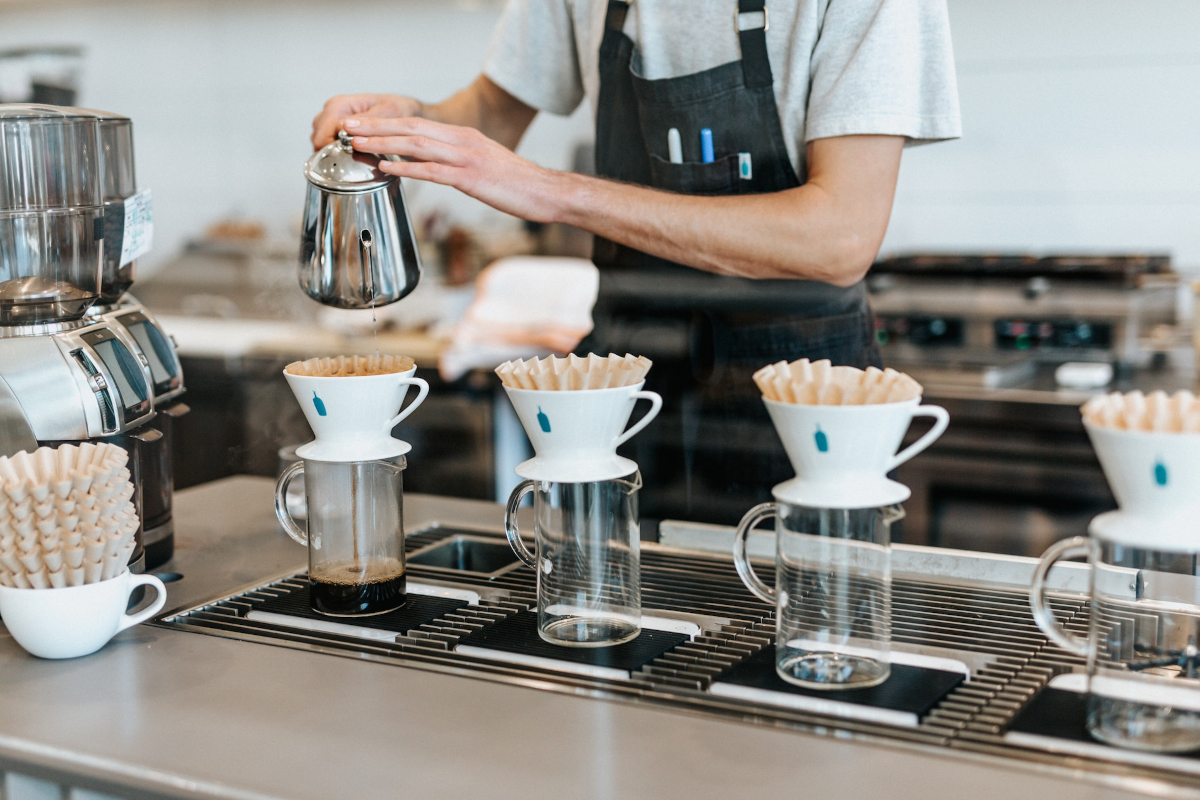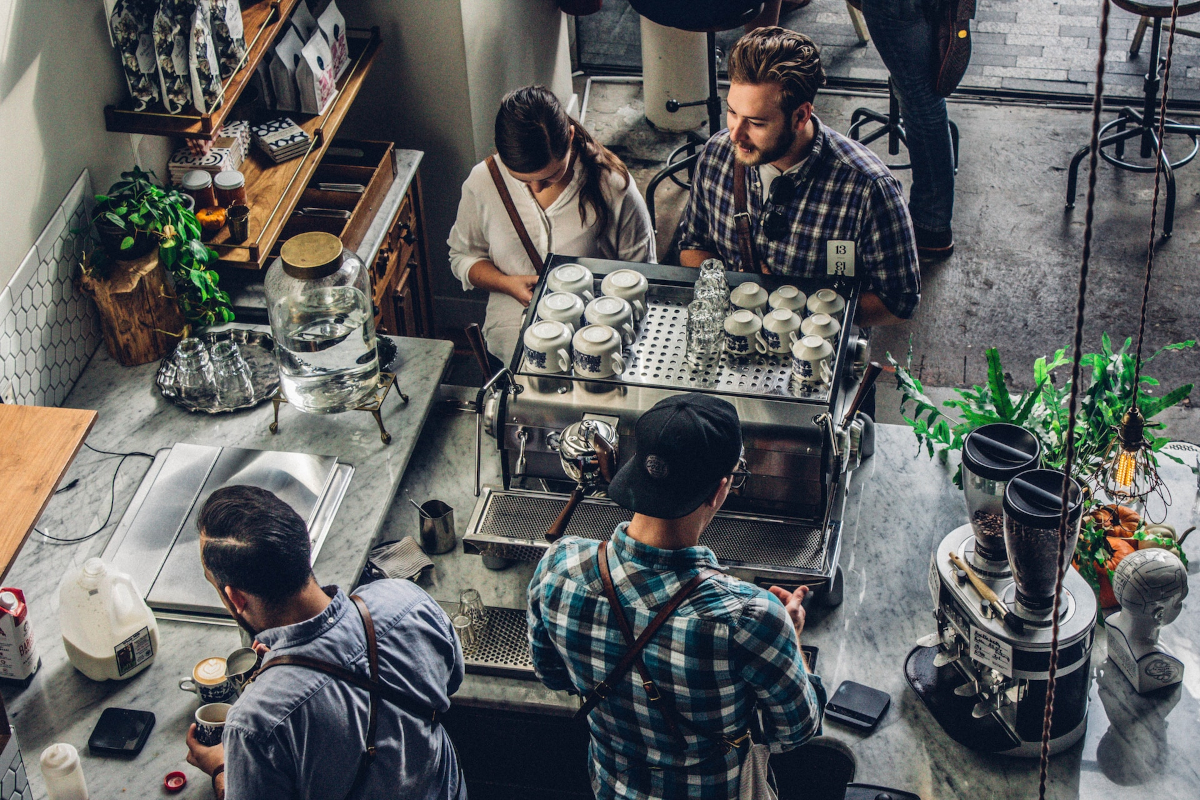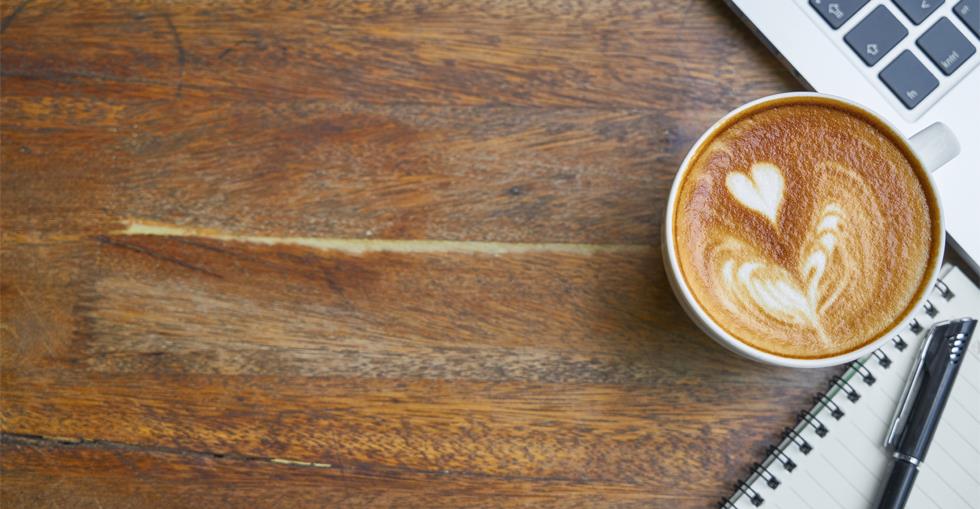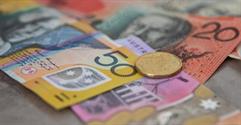Made the big decision to sell your coffee shop? Or perhaps you’re making plans for a year or more down the line when you want to move on.
It’s worth getting your ducks in a row sooner rather than later because it could take several months or longer to complete the process.
Here are some tips on preparing for sale, finding your business value, finding the right buyer, and negotiations and legalities.

Prepare your cafe for selling
Before you even begin the process of selling your cafe, first, ask yourself: What do you want to get out of selling your cafe? Here are some solid motivations:
- You’re preparing for retirement. Your coffee shop may be in great shape, but you’re in a position to retire and pass off the business to new leadership.
- You have an eye on a new venture. You want to become the new owner of a unique investment or similar business. You’re looking for a selling opportunity so you can be on the other side of the sales process.
- There’s a high demand for you to sell. Your coffee business has customers pouring in and interested parties want you to sell.
- You want new leadership. This is common if your cafe is not performing well and its future is uncertain. New leadership often means new ideas, so this could be a way to save your cafe from going bankrupt.
Once you’ve made an informed decision to sell, it’s wise to get the business premises, the processes and the paperwork in the best possible shape.
There are obvious things like ensuring your accounts and other important documents are up to date, easily retrievable and that the premises are clean, tidy and running smoothly (though this is hopefully a daily priority regardless!).
However, you could take more radical action, depending on the investment of time and cash involved compared to how much the business’s attractiveness to interested buyers is enhanced. This could involve anything from replacing or upgrading coffee machines to repainting and fitting new carpets if things are looking a bit shabby.
It’s not worth doing anything too drastic. The buyer will have their own ideas so there’s no point wasting time finding new coffee suppliers or spending thousands on a makeover.
Should you use a business broker?
A broker can perform a variety of tasks on your behalf. They can help you with a business valuation, find new markets for selling your coffee shop and aid you in getting the highest possible purchase price.
A suitably qualified broker can offer good advice and set you up with prospective business owners.
For example, they might set up virtual data rooms, to which you can upload all relevant documentation. The buyer’s access will be restricted according to what information you are ready to disclose.
With everything accessible, virtually, all in one place, it makes the process faster and more efficient — and the buyer less likely to walk away in frustration.
You should research your broker ahead of time to ensure they’re competent and have a history of successfully helping others in your particular business type.
However, not everyone will want a broker. Brokers can be expensive and take away much of the process from you. You may not want their advice at all, instead preferring to do things yourself.
How to tell how much your cafe is worth
An accountant or business broker with experience in selling coffee shops can help you value your restaurant.
“When valuing something, you can break it down into a couple of parts: capital (equipment) value and its income earning potential,” says Angus Nicol, a former financial planner and founder of Oz Café Exchange, on BlackMarketRoasters.com.au
“Valuing equipment is pretty simple. Basically, it is just the purchase price minus wear and tear, taking into account what it would cost to replace that piece of equipment.”
Add to this the value of stock, he says, including “coffee beans, dry goods, drinks etc.
“So long as you have your lease set up correctly and you can prove your financials, you can then work out what that income stream is worth,” he continues. “Once you find out what that net profit is after wages, rent, all expenses, tax, fees etc, you then annualise it – by that I mean find out what the profit for the year is, based on historical data.”
Profits will be multiplied by a certain ratio – “between 1.5 and 2.5” for a cafe or coffee shop. “The better the café, the higher the multiple,” says Nicol. “The longer the lease, the cooler the marketing, the more opportunity for growth, the higher the multiple.”
You should also look at other businesses in surrounding areas so that you can see how others are valued. Ultimately, your accountant should be able to tell you what your café business is worth.
You can also use our Quick Valuation Tool if you'd like an estimated worth of your café.

How to find the right buyer
You may want certain qualities in a buyer depending on what your interests are. For example, are you only interested in the highest purchase price? Or are you more focused on selling to someone you think will best help your coffee shop succeed? Establish ahead of time what qualities you want in the ideal prospective small business owner.
Ways to find buyers include:
- Through business brokers or real estate agents
- From among family, friends or employees
- By advertising in the local newspaper or trade publications
- Through word of mouth
- Through BFS website
When is the best time to sell your coffee shop?
A good piece of advice: The best time to sell your coffee shop is when it’s performing well so it attracts buyers. This is why you want to take your time when preparing to sell your business — at least two years of preparation is warranted. During this time, you can take steps to boost your business as much as possible. If you succeed, when it comes time to list your business for sale, you and your small business will be in ideal shape.
Negotiate your cafe and understand the legalities
Upon finding a buyer you must negotiate a sale price and the terms of the sale.
This phase requires capable negotiating skills from both sides to ensure both parties get more or less what they want out of the deal. Negotiating is a give-and-take process, one in which each party must be willing to make concessions while also being able to recognise and communicate the things you won’t budge on.
However, the one thing that must be protected is mutual trust — if one party is distrustful of the other, the likelihood of a successful negotiation drops dramatically. This means being open and honest about what you want and having documentation ready to answer any questions they might have.
You could negotiate a higher sale price by accepting a portion of the payment in stages — known as seller financing — although this means waiting for some of your money and exposing yourself to the risk of a buyer default (although your solicitor can help you put protections in place).
Get the buyer to sign a confidentiality or non-disclosure agreement before you divulge sensitive information. The initial agreement will be set out in the non-binding heads of terms. Only when the buyer has completed due diligence — an in-depth inspection of your restaurant, from books and records to the premises, equipment and how it operates day to day — will you then draft the final, binding sale agreement.
Sale agreement
Based on the heads of terms the sale or purchase agreement will be more detailed — perhaps 20 pages or so — and include warranties and indemnities you’ve agreed with the buyer.
It cannot be overemphasised how important it is to get a competent solicitor experienced in reviewing warranties to guide you through the process.
A coffee shop is often leased. If this applies to you, don’t assume that securing consent from landlords or banks for the business transfer and related intellectual property and equipment leases, bank loans and overdrafts will be quick and easy. Seek these consents as early as possible to prevent delays.

How to sell a coffee franchise
If you’re selling a coffee franchise then check your franchise agreement for terms relating to selling up, such as the franchisor having the first right of refusal. Chances are, the franchisor will have a clear transition plan in place.
However, “if the franchise agreement is silent on the issue of sale, you can still ask the franchisor to agree to the transfer” as “the franchisor’s consent is not required,” according to franchising lawyer Jane Garber-Rosenzweig.
Once you have a buyer lined up, however, they’ll probably have to meet the same selection criteria that you met, according to the Franchise Council of Australia.
Appoint a franchise lawyer
You’ll probably need more than an accountant to ensure you’re meeting all of your legal obligations. That’s what a franchise lawyer is for. This person can help you:
- Review your franchise agreement
- Review the lease, if applicable
- Liaise with the landlord and oversee lease transfer
- Liaise with the franchisor
- Draft the contract of sale
The franchisor can help you value the restaurant by sharing the prices achieved by similar franchise territories sold recently. The longer you have left to run on your franchise agreement, the higher the price you can reasonably set too.
Anticipate costs
Be prepared to pay a number of fees and other costs, including:
- Business broker fees
- Accountancy fees
- Legal fees
- Landlord’s costs, unless the buyer agrees to pay tax on any capital gains accrued
- Transfer/sale fee to the franchisor, which is either fixed or as a percentage of the purchase price
Transfer the lease
If the franchisor holds the lease on the commercial property then they must either reassign the licence agreement or draft up a new one for an approved buyer. If instead, you’re a named tenant, you must get the landlord’s consent – potentially contingent on paying their legal costs.
Finalise the sale
Once you’ve performed your due diligence and checked all the boxes, you should, ideally, be satisfied with the business sale. Whatever your goals were for selling in the first place, they should have been achieved after selling successfully.
Be prepared and sell your cafe with confidence
Selling a cafe can be a lengthy process fraught with uncertainties and legalities. But it doesn’t have to be difficult if you know how to prepare. Get your affairs in order and be ready for anything that might come your way before you put your coffee shop up for sale and wait for potential customers. It’ll infinitely pay off and ensure that the process is smooth — and, ultimately, give you a much better chance of getting what you want out of the deal.
Ready to sell? You are just 10 minutes away from advertising your business to thousands of prospective buyers. List your business on BusinessesForSale.com today.



